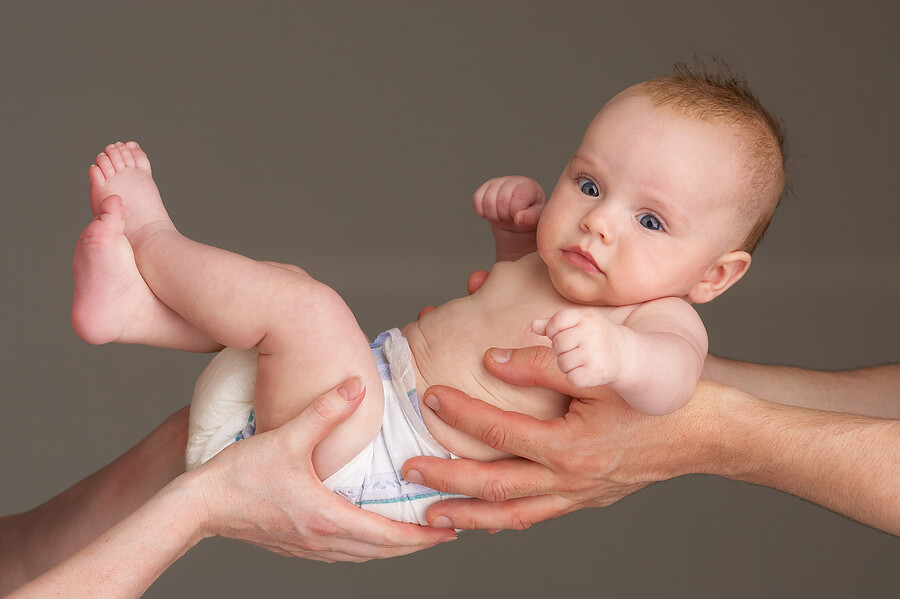

Cloth diapers have become more convenient in recent years. Newer styles have the same Velcro tabs as disposables, making it easier to secure onto your child without the use of clumsy pins. Flushable liners also give you the convenience of flushing waste down the toilet – no stinky garbage bags full of diapers to contend with. Cloth diapers do create more laundry, but it is usually only about two extra loads per week, and there is always the option of utilizing a diaper service.

The cost of disposable diapers varies greatly due to the wide range of brands available. Some brand names cost twice as much as store brands, so it is up to you to decide on the quality of diapers you prefer. In general, using a diaper service costs about the same as buying disposable diapers.
You can save money by forgoing the diaper service and laundering your cloth diapers yourself. The amount of cleaning and sanitizing you choose to do will have an effect on the amount of money you spend, when you take into consideration cost of electricity, soap, water, and wear and tear on your washing machine and dryer. This option is by far the cheapest, but it is not for everyone. Some would rather spend the money to utilize a diaper service than stomach the task of washing dirty diapers all week.

The production of disposable diapers requires tens of thousands of pounds of plastic and hundreds of thousands of trees every year. The National Association of Diaper Services points out that disposable diapers are also the third largest source of solid waste that goes into the nation’s landfills every year and take up to 500 years to decompose.
Although cloth diapers may seem to be the clear winner in this debate, they pose environmental concerns, too. Repeatedly washing cloth diapers uses a lot of water and energy, and the detergents and waste can pollute the water.

How are disposable diapers comfortable? The superabsorbent gel in most disposable diapers gives your baby the feeling of being dry, making him comfortable even when he is wet.

Human waste in landfills can also potentially leak and contaminate a community’s drinking water, increasing the risk of spreading diseases, such as polio. To date, the Institute of Environmental Health has found no evidence of contamination in the United States. This concern tends to affect countries that do not have well-constructed landfills and proper sewage systems.
Although cloth diapers may seem to be the safer way to go, it is important to know the proper washing methods for cloth diapers to help curb the spread of bacteria and diseases. Improper washing methods can increase the risk of spreading germs and bacteria from person to person.





